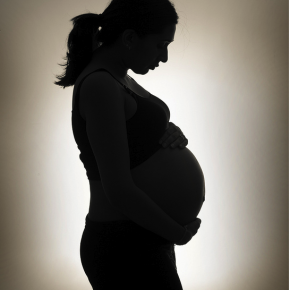
Ever since Sigmund Freud introduced the concept of a person’s childhood shaping their adult selves, the notion of our formative years conditioning our adult lives has seen a rise in popularity. There have been many heated debates over nature versus nurture, as well as the foundations of personality, popping up in Lamaze classes and parenting circles.
But what if we could go back even further than that? What if someone told you that your time spent in the womb was just as important as the years spent crawling on all fours? That is precisely what some scientists working in a field, known as developmental origins of health and disease or fetal origins, are claiming. They’ve provided evidence for the idea that everything from your mother’s diet to her state of mind while pregnant can ultimately shape who you become later on in life.
The genesis of the fetal origin movement came when David Barker, a British physician and professor of clinical epidemiology at the University of Southampton, noted two decades ago the correlation between a high rate of heart disease and living in poorer neighbourhoods. This surprised him, as heart disease was purportedly an ailment of the upper, more sedentary class.
After some research into the matter, he found a link between small birth size and heart disease. From this he drew the conclusion that the mother’s lack of proper nutrition during pregnancy would cause the fetus’ to redirect nutrients to the brain in favor of less vital areas. This meant that when those children reached middle age, their hearts were more likely to be noticeably weaker than average.
This idea, known as the Barker Hypothesis, has slowly begun gaining traction within the scientific community since its inception 20 years ago. Now, others are having similar findings in their own fields of research, such as the pair of studies done at Harvard Medical School. The first links a woman’s weight gain during pregnancy to her child’s risk of being overweight by age three, and the second finds that this correlation extends even further into adolescence.
Additionally, research comparing children born to obese mothers and their siblings born after the mother had gastric bypass surgery, has shown that those delivered after the surgery were 52 per cent less prone to obesity than their pre-surgery brothers and sisters.
Fetal origin research has also yielded discoveries in the domain of mental health. One study, using 30 years of case records from the Chinese province of Anhui, found that those born during the country’s Great Leap Forward, a failed economic and social campaign from 1958 to 1961, that resulted in a severe famine. Studies showed that the children born during this period were twice as likely to suffer from schizophrenia.
Another study found similar results for Israeli children who were in their second month of gestation during the Arab-Israeli Six-Day War in June 1967.
“This research is very important because as we identify risk factors for child maladjustment – like an adverse prenatal environment – we can more easily work to alleviate this risk,” said Sara Colalillo, a McGill psychology graduate currently working on her masters in clinical psychology at the University of British Columbia.
“For example, educating and training families to provide a warm, supportive environment in the months and years after birth can mitigate the risk of a suboptimal fetal environment.”
Colalillo worked at the Douglas Mental Health University Institute in Montreal studying how the early environment, including the in-utero environment, can have lasting effects on different aspects of development and health across the lifespan.
She said there is still much more to be learned when it comes to what makes us who we are.
“Human development is extremely complex, and the fetal environment is a fundamental part of the process. But of course, it is not the only part, and there are countless factors that serve to influence our health and competence throughout our lifetime,” said Colalillo. “Still, we have so much to learn from this important little window of time in our lives!”




